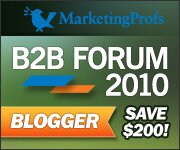
Photo credit: static
Education. When did we forget how important it actually is?
As soon as you deem education unnecessary, you are setting yourself up to be used as a tool for a brand or client. It’s not a partnership that is built on trust. The thing is? Agencies retain business (and earn more responisiblity) once a brand trusts you and your work. Why not bring them into the process? By building a foundation based upon you as a sole resource, you’re shooting brand efforts in the foot. You are inserting yourself as the only one who is “knowledgeable” on the subject, with no room for growth or for others to question.
True story: Imagine Person A saying they are worried they would be “cut out”, “lose leverage/dependance” and “lose business” if they built upon an education model. Say what? It’s a mindset that might seem baffling, but is also rampant in numerous industries.
If we don’t educate, how do we know how to cultivate information, drive our clients to think of the right information and reach measurable objectives? It won’t work. Somewhere down the line, the brand will fail – and that thing Person A was worried about? It becomes a reality.
So how can an individual, and even an agency, overcome it?
Set education objectives
Agency
It’s great to have a team of people as the resource foundation – in fact, it’s encouraged. The great thing about a foundation is that one can build on it. Depending on a few people to be the go-to folks for knowledge isn’t a practical business approach. Everyone, no matter what level, should have a general understanding. That way, they can know what questions to ask and can eliminate a lot of busy work at the beginning of the process. Setting expectations shouldn’t be scary – even if trying to get buy-in can be. It’s very easy to absorb information through professional groups, social platforms and general networking. Management should encourage employees to be involved.
Clients
Clients should have goals too – and they won’t always be similar to an agency. Encourage brands to think past their budget year and what type of company they want to be in the next few years. A B2C company might be focused on consumer interaction and how that drives revenue. A B2B company might be thinking on how education can strengthen existing relationships. Each client will be different, and have different goals. It’s up to the agency to know what questions to ask and how to get them across the finish line. Sometimes, the agency-client dynamic is switching between the driver and passenger seat.
Benchmark through a rewards system
Buy-in is never easy. People are busy and learning something new is difficult. You can approach buy-in from a few different ways:
- Competitive angle: The competition is doing so and have improved their new business model
- Reassurance of time: It won’t take a lot of time, and is something clients/brands will benefit from
- Hybrid v. Specialists: Those that are able to take on hybrid roles can shift mentalities and strengthen clients – sometimes easier than a specialist
At any rate, incentive can help speed up the process. If a person can see a tangible, physical goal (as in an extra hour on a lunch break for completing education requirements or sitting through trainings) then they might be more open to it. In an agency, time is of essence. It has to be something that will be worth it in the long run – otherwise, you’re beating your head against a wall. A client benefit should be seen before jumping into the education process. That tangible goal also makes it easy to benchmark and see where progress has been made, and what areas need improvement.
Create a newsletter to share ideas
What’s the quickest and easiest way to share information? Sharing information. A person can still position themselves as knowledgeable by aggregating content important to not only the agency, but clients as well. An approach might be for a newsletter to go out every Friday to the agency with links to articles with explanations, as well as a link to your Delicious page. (We do this at FHKC)
Do people in your agency blog? Share those as well. From there, a person can create “passable” content to a client for them to absorb and read on their own time. It’s an easy way for them to absorb and buy-in at their own speed -and I can guarantee that most clients want to know what you’re up to and what type of approach you’re taking/learning from.
Aim to send them 3 links a week to articles/webinars
If a newsletter is a lofty idea, try to send articles, webinars and blog posts to your client on a weekly basis. If you have weekly meetings, try to set aside some time to discuss the takeaways and what they thought of the information. Don’t just send links, but bullet out some takeaways that can be understood and the importance seen before reading.
Ask opinion
A-S-K – because it’s going to make clients/brands feel important and involved in the process. If they don’t feel as if they are a partner, why would they trust you with their business? Education, trust and retaining business go hand in hand. Many consumers will go with a product that gets the job done, but that they trust and have always been dependable. That type of business model is why Apple struggled for so long (and once they honed in on a specific audience and built around it, they exceled.)
Measurement
Look, we all know how hot this topic is. Many agencies have an analytics department, or a team of people that are knowledgeable in the subject. Some even have one person for this job. But, if we have learned anything about how important education is – it’s that everyone should know how to do it in some capacity. Many measurement vendors have free webinars to discuss measurement – and folks such as Don Bartholomew, Chuck Hemann and Shonali Burke make information readily avaliable. Many vendors also have training webinars so that clients fully understand the product.
You can’t always depend on a person (or during a time crunch, a department) to solely be responsible for this information. To truly work as a team, instead of in silos, you have to find the value in education.
What would you add? How important do you view education – and is it something everyone should be aware of?




